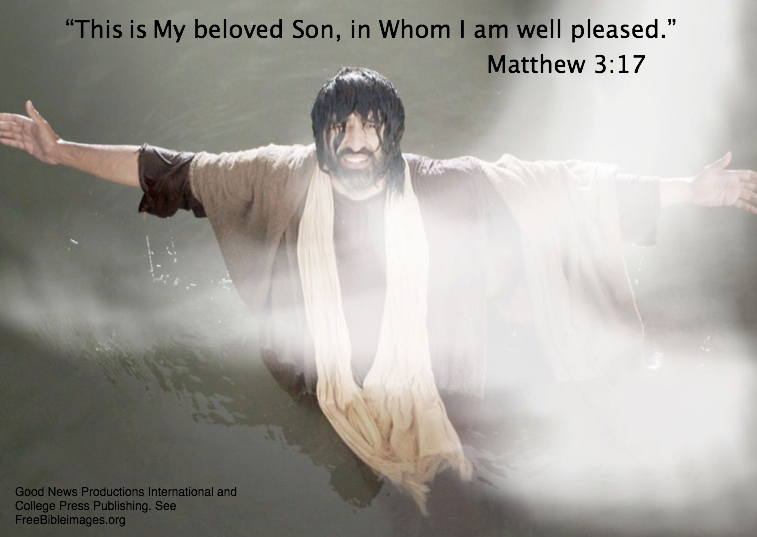One of the greatest challenges we face as believers is fear in evangelism. It’s not that we don’t want to share Christ with others. Nor is it due to a lack of commitment. I believe most Christians would love to share the gospel with non-Christians, but they are overcome with fear. They are afraid of rejection. They are nervous about not knowing what to say. It is important to understand that fear in evangelism is normal. Even the apostle Paul was afraid to share the gospel at times. This is why he asked believers to pray that he would have boldness in preaching the gospel (Ephesians 6:18-20; cf. I Corinthians 2:3). The issue is not having no fear in evangelism. The issue is how to overcome fear with boldness. How can we overcome fear in evangelism?
In Acts 4:12-31 there are four principles for overcoming fear in evangelism. In the context of these verses we see that as a result of healing a lame man in the name of Jesus Christ, Peter and John were brought into the custody of the Jewish supreme court of Israel known as the Sanhedrin (Acts 3-4). Instead of standing before the wealthiest, most intellectual and powerful group in the land as a victim, Peter and John stood before them as their judge. Peter accuses them of crucifying not only the One Who was innocent, but also the One Who was the long-promised Messiah (4:10-11). Ouch! That is boldness! Do you want that kind of boldness to speak up for Jesus? Then…
GRASP THAT YOU HAVE THE RIGHT MESSAGE (4:12). Peter said, “Nor is there salvation in any other, for there is no other name under heaven given among men by which we must be saved” (4:12). Do you believe that? If you do, it will increase your boldness to share Christ with others. He is the only One who can save people from their sins. The more you are convinced that the gospel is true, the more boldness you will have to speak up for Christ.
Who should have more boldness, a Christian talking about Christ, or a Buddhist talking about Buddha? A Christian, of course! Why? Because unlike the Buddhist, the Christian has a message from God (cf. I Thessalonians 2;2-4). It contains no error. We have only truth and Good News, not error and bad news to give people. Only a Christian has the message that proclaims Christ’s name as the only name by which God will save those who come to Him in faith.
Why is Jesus’ name the only name by which people can be saved from hell forever? Because He alone is God (John 1:1, 14; Titus 2:13; Hebrews 1:8; I John 5:20) and He paid the full price of admission into heaven when He died on the cross and rose from the dead. All other religions, whether it be Islam, Hinduism, Buddhism, Mormonism, Jehovah’s Witness, Iglesia Ni Cristo, etc., are spelled D-O. Their message centers around a false gospel – what the person must DO for God to get to heaven. Christianity, however, is spelled D-O-N-E. The work of paying the full penalty for all of our sins was“finished” or DONE when Jesus Christ died in our place on the cross and rose from the dead (John 19:30; I Corinthians 15:1-6). This is the true gospel based on what God has done for us, not what we have done or will do for Him. Knowing that we have the only message in the world that guarantees a future home in heaven for all who believe in Jesus Christ alone can give us more boldness in evangelism.
GROW CLOSER TO JESUS (4:13). As Peter and John boldly spoke of Jesus before these educated and powerful opponents, their listeners could discern that these men had spent time with the Savior. “Now when they saw the boldness of Peter and John, and perceived that they were uneducated and untrained men, they marveled. And they realized that they had been with Jesus” (4:13). These two lowly fishermen were not intimidated by all the intellectual knowledge and training of these men. They were more impressed with Jesus and they wanted this group to know Him in a personal way. This elite religious group acknowledges the boldness of Peter and John while noting their lack of education.
Often a person’s boldness for Christ shrinks as his education increases. He or she becomes “too sophisticated” to be bold for Christ!! It’s better to possess boldness and lack learning, than to possess learning and lack boldness. And it is one thing to be bold with our social equals, but it is an entirely different thing to be bold – as Peter and John were – with our social and educational superiors. True boldness knows no respect of persons.
Boldness in evangelism does not arise from having a theological degree or a vast knowledge of the Bible. The key to boldness in evangelism is spending time with Jesus Christ. Peter and John had been in a discipleship relationship with Jesus for over three years. His heart became theirs. So the closer we get to the heart of Christ, the closer we get to the people for whom He died. His heart bleeds for the lost. Luke 19:10 explains: “For the Son of Man has come to seek and to save that which was lost.” The heart of our Lord is a seeking heart. Aren’t you thankful for that? We would still be lost in our sins if Jesus did not seek us out. Look at God’s heart. First Timothy 2:3-4 say, “For this is good and acceptable in the sight of God our Savior, who desires all men to be saved and to come to the knowledge of the truth.” God created hell for the devil and his angels (cf. Matthew 25:41), not for people. God desires that all people go to heaven and He wants to use you and me to introduce people to the Savior who can get them there.
Those who live close to Christ capture His heart for the lost. They bleed for the same people He bleeds for. And the more they experience Jesus’ love and grace in their lives, the more compelled they will be to tell others about Him and what He can do for them.
Also, as we grow closer to Christ, we can approach people with a clear conscience (cf. I Thessalonians 2:10-12). We don’t have to consider witnessing to a lost person thinking, “I sure hope he doesn’t find out how I live or treat my family.” Instead we can walk up to someone who doesn’t know Christ knowing we are attempting to live a consistent Christian life. Notice, I said “consistent,” not perfect. If we are living with unconfessed sin, it will reduce our boldness for preaching the gospel since our fellowship with the Lord will be broken (I John 1:3-10). I cannot be bold for Christ if I am out of fellowship with Him.
GIVE CHRIST OUR OBEDIENCE, NOT OUR OPINIONS (4:19-20). Overcoming fear in evangelism is not done in a classroom or convention. It is cultivated through obedience. Peter had just accused the Sanhedrin of crucifying the long-promised Messiah named Jesus. These leaders did not want to hear this, so they commanded them not to preach Christ any longer (4:18). To share Christ now would be to go against the highest authority of the land. What would they do? It’s one thing to share Christ in a friendly environment such as in the church, but what about sharing Christ with those who could take your life? What would Peter and John do? Would they hover in a corner… pray for the rapture…or plead with God to send someone else? No. Their response was immediate. There was no, “Would you allow us a day or two to pray about this?”
“19But Peter and John answered and said to them, ‘Whether it is right in the sight of God to listen to you more than to God, you judge. 20For we cannot but speak the things which we have seen and heard’ ” (4:19-20). The apostles had made their decision. Obedience to God must come first, not a surrender to the fears and threats presented by people. They made their decision; their accusers could make their own. The apostles were so gripped by the message of the gospel that everything else became immaterial in comparison. They had the attitude, “If you miss this, you have missed everything.” Peter and John are compelled to make the truth of Jesus known and they continue to do so.
God honors obedience. The humble, dependent heart that says, “Lord, I’m afraid to preach the gospel, but you are my Master. I am Your disciple. I will do it for You, Lord Jesus, with Your help” (cf. Luke 5:5). We cannot overcome fear in evangelism apart from obedience to a simple God-given command.
The more you know Jesus, the more You want to please Him instead of people. Jesus is not interested in hearing our opinions about why we lack boldness in preaching the gospel. Some of those opinions may include :
“But, Lord, I don’t know what to say to these people. I don’t want to be embarrassed.”
“These people may ridicule me or reject me.”
“Lord, I could lose my life.”
What’s at the center of all those opinions? The word “I” or “me.” Focusing on ourselves becomes distracting at the least and defeating at its worst. Instead of focusing on ourselves, let’s shift our focus to Jesus and what would please Him. He is more interested in our obedience to His command, “But you shall receive power when the Holy Spirit comes upon you; and you shall be witnesses to Me in Jerusalem, and in all Judea and Samaria, and to the end of the earth” (Acts 1:8; cf. Mark 16:15).
The power and boldness of the Holy Spirit is given to those who obey. When we seek to please Jesus Christ instead of ourselves or others, we will always have boldness in our preaching. It won’t matter if our audience is receptive or not because our most important Audience is seated at the right hand of God the Father in heaven, not next to you at work or school or on a bench at a film showing. Keep looking unto Jesus (Hebrews 12:2). Seek to please Him, not people (Colossians 3:23-24). In order to renew our boldness in evangelism, we must resolve to obey Christ at any time. He may ask you to share the gospel when it is inconvenient or uncomfortable or even when it does not make sense. But when Jesus tells you to share His gospel with someone, JUST DO IT. He will give you the words to say through His Spirit (cf. Matthew 10:17-20). He will give you the boldness with which to say it (Acts 1:8; 4:29-31).
GO TO GOD IN PRAYER (4:23-31). When Peter and John returned to the rest of the church, they did not brag about how they stood up to the Sanhedrin. They reported all that the religious leaders said to them (4:23). The apostles were afraid and together with the rest of the church they laid their fears before God (4:24-30). Often times we tell one another about our lack of boldness in evangelism, but seldom do we talk to the Lord about it. God ought to be the first Person we talk to about our lack of boldness in evangelism, not the last.
As these believers looked up to God in prayer, they focused on four things…
God’s Strength (4:24): They prayed,“Lord, You are God, who made heaven and earth and the sea, and all that is in them…” (4:24). Threatened by the rulers of Israel, these believers now turn to the Ruler of the universe who also created these rulers. The majesty of God’s creation dwarfs the earth and its problems. We must not let our problems dwarf our concept of God but let our concept of God dwarf our problems. Since God can create the universe in six days, He will have no problem giving us the strength to renew our boldness for preaching the gospel.
God’s Scriptures (4:25-26): They prayed, “25Who by the mouth of Your servant David have said: ‘Why did the nations rage, and the people plot vain things? 26The kings of the earth took their stand, and the rulers were gathered together against the Lord and against His Christ.’” (4:25-26; cf. Psalm 2:1-2). These Christians are praying the Scriptures found in Psalm 2:1-2, which describe a future day of rebellion when the nations will gather against Christ under the Beast of Revelation at the end of the Tribulation period (cf. Revelation 16:12-16; 19:19). They were so familiar with the Bible that they could see the relevance of Psalm 2 to their situation. The more we know God’s Word and its relevance to our situation, the more boldness we will have in evangelism.
God’s Supply (4:25-26): When these Christians focused on Psalm 2 which talks about a future day of rebellion when the nations will gather against Christ under the Beast of Revelation, do you know how the Lord will respond to their opposition? Psalm 2:4 says, “He who sits in the heavens shall laugh.” This is like the laughter of a father whose three-year old boasts that he can outrun him or beat him in a wrestling match. It’s not going to happen. Likewise, God knows the boundaries of power among the nations and He is amused by their attempts to overthrow Him. That, my friends, is boldness! If God laughs at this spirit of rebellion among the nations, it would be inappropriate for you and me to be afraid of those who oppose the gospel. God has an abundant supply of boldness to give us if we will ask Him for it.
God’s Sovereignty (4:27-28): They prayed, “27For truly against Your holy Servant Jesus, whom You anointed, both Herod and Pontius Pilate, with the Gentiles and the people of Israel, were gathered together 28to do whatever Your hand and Your purpose determined before to be done” (4:27-28). These believers apply the future spirit of rebellion to those who crucified Christ. They understood the sovereignty of God – that everything happens according to His plan. And the more you believe this, the more confidence and boldness you will have. God allows difficulties in our lives to teach us that He is in control and that nothing is impossible with Him. Have you ever met people you think even God cannot save? That person you think will never become a Christian? Bring him or her to God in prayer and he can melt that heart of stone.
Look what happens next. “29Now, Lord, look on their threats, and grant to Your servants that with all boldness they may speak Your word, 30by stretching out Your hand to heal, and that signs and wonders may be done through the name of Your holy Servant Jesus” (4:29-30). They don’t say, “Lord, would You remove these troublemakers… save us from prison or death.” No, they don’t pray that. Instead they ask God to give them the boldness and the power to share His Word with those who could take their lives. We often ask God to remove our problems rather than pray for God to be glorified in them. Thank God these believers prayed in this way, otherwise the church would not be here today. If we don’t pray in this way, the church may not be in our communities for future generations.
What happened after they were done praying? “And when they had prayed, the place where they were assembled together was shaken; and they were all filled with the Holy Spirit, and they spoke the word of God with boldness” (4:31). The more we look up to God in prayer, the less fear we will have in evangelism and the more we will boldly speak up for Christ with others!
Someone once said that in Acts 1-2 they pray for ten days, Peter preaches for ten minutes, and three thousand get saved. Today, churches pray for ten minutes, preach for ten days, and three people get saved. A.C. Dixon once said:
“When we rely upon organization, we get what organization can do; when we rely upon education, we get what education can do; when we rely upon eloquence, we get what eloquence can do, and so on…But when we rely upon prayer, we get what God can do.” How much bolder would we be in evangelism if more were happening in our prayer lives?!
If we want to overcome fear in evangelism…
GRASP that we have the right MESSAGE (4:12).
GROW closer to JESUS (4:13).
GIVE Christ our OBEDIENCE, not our OPINIONS (4:19-20).
GO to God in PRAYER (4:23-31)






